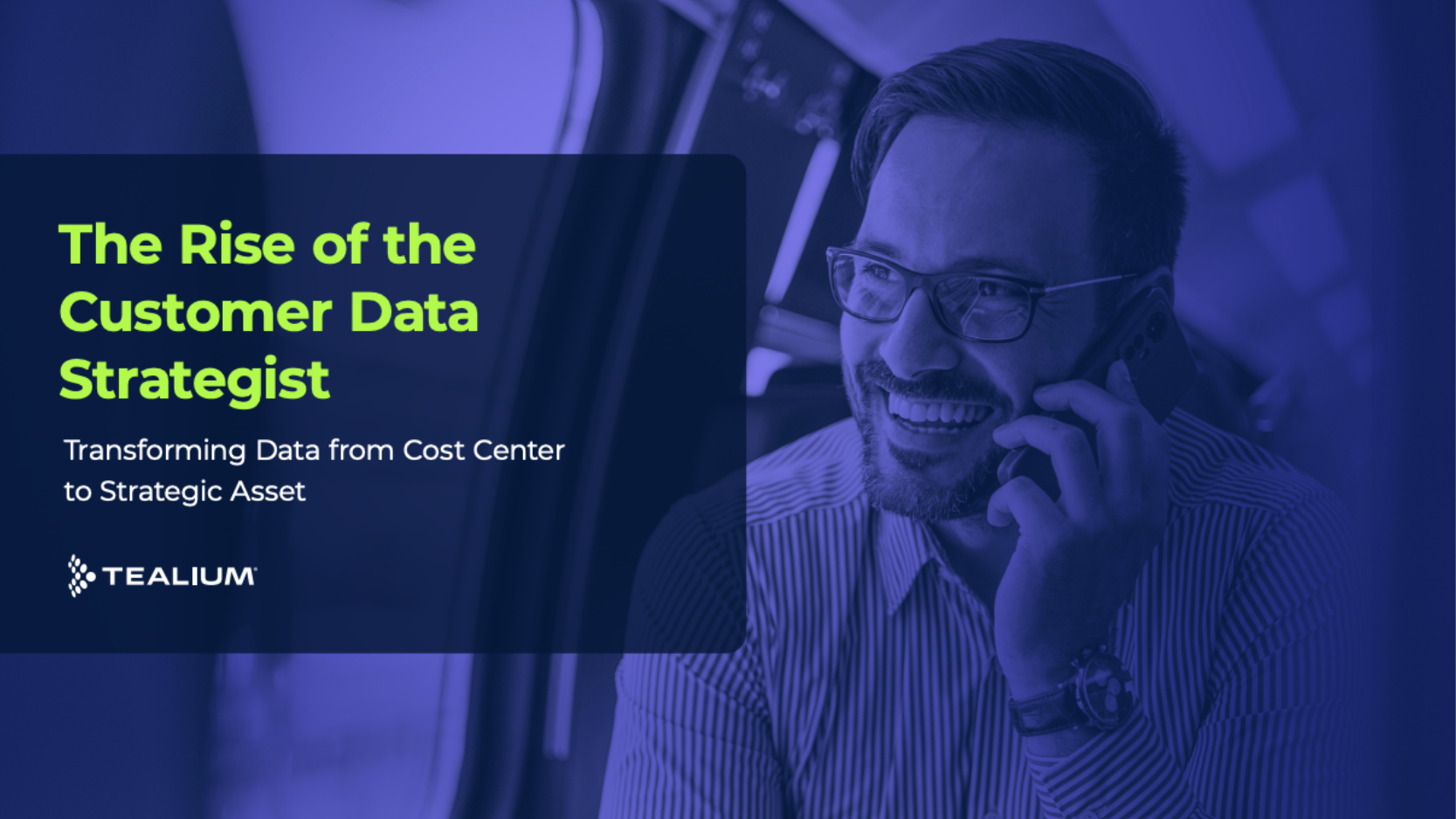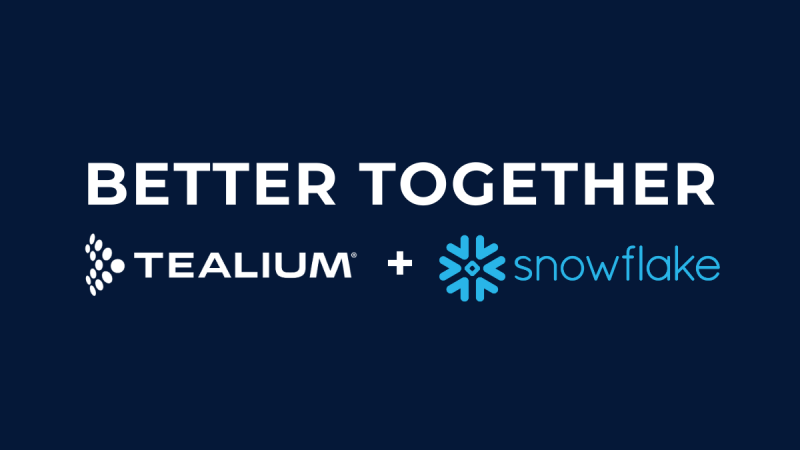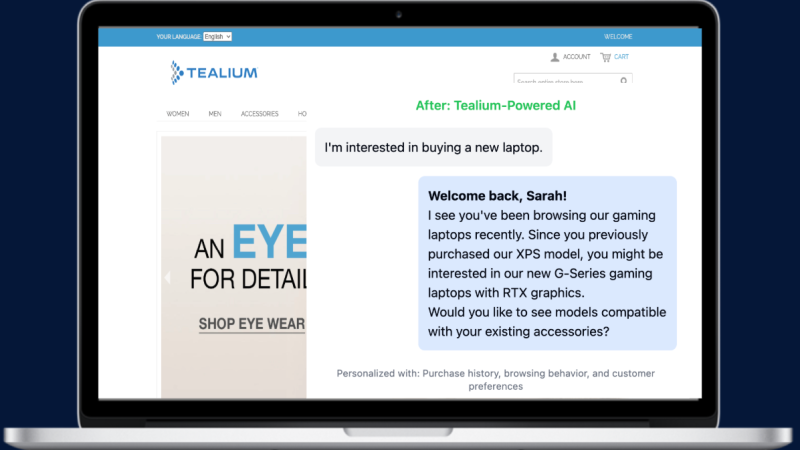When the Office for Civil Rights (OCR) issued its bulletin on online tracking technologies in 2022, the entire healthcare industry was put on notice. Protecting patient privacy became table stakes. At the same time, organizations are under enormous pressure to modernize, adopt AI responsibly, and deliver world-class patient experiences.
The challenge? Vendors often oversimplify this reality. They market compliance as a checkbox or a single feature. They emphasize restrictions instead of governance, or narrow integrations instead of flexibility. On the surface, that may sound appealing. But for organizations balancing regulatory risk, innovation demands, and enterprise complexity, these shortcuts rarely stand up to scrutiny.
As the first enterprise Customer Data Platform (CDP) with a HIPAA-compliant offering, Tealium has over a decade of proven experience working with healthcare and pharmaceutical leaders worldwide. I know because I’ve been at Tealium for more than 14 years, and was part of the team that built Tealium’s first HIPAA-compliant services.
After 14-plus years helping some of the world’s largest healthcare and pharmaceutical organizations architect HIPAA-compliant data strategies, one lesson stands out: what healthcare truly needs is not shortcuts, but platforms that balance compliance with innovation backed by enterprise-grade muscle fit for the industry.
Where Oversimplification Misses the Mark
Healthcare data is messy, complex, and unforgiving of half-measures. Yet new vendors often reduce compliance to slogans. Here are the most common oversimplifications we’re hearing, and what leading organizations actually require instead.
- “Safe by Default” vs. Enterprise-Grade Governance
Some platforms position themselves as “safe by default” by blocking data flows unless explicitly enabled. While that may sound appealing, it comes at a cost: vendor lock-in, limited integrations, and a patchwork approach that leaves risky trackers in place on websites.
Tealium is also safe by default because you can collect, store, and analyze PHI within Tealium in a HIPAA-compliant manner. However, Tealium takes it a step further by
- Replacing risky, client-side trackers with secure, API-based data transmission
- Providing field-level governance, consent management, role-based permissions, and audit trails, empowering compliance teams with transparency and proof points
- Enabling customers to have the freedom to innovate with any analytics or marketing vendor, while maintaining guardrails that prevent PHI from leaking to non-compliant destinations
Rather than shifting accountability, Tealium enforces compliance through enterprise data governance.
- Ad Platform Integrations
Ad platforms like Google Ads and Meta are powerful, but they carry inherent risk for healthcare organizations if PHI is shared, even inadvertently. Oversimplified solutions suggest the burden rests on customers to prevent this exposure.
The reality is different – an enterprise CDP should:
- Enforce data minimization and filtering at the field level. Sensitive fields can be blocked permanently from ever being sent downstream
- Support consent-based enforcement, ensuring data only flows where it should
- Log every flow, giving legal and compliance teams confidence that no PHI was transmitted
Rather than restricting customers to a pre-approved list of integrations, proper vendors enable safe, policy-driven use of any vendor ecosystem. This flexibility is critical for healthcare organizations looking not just to achieve compliance today, but also to be ready for future regulations.
- Google Analytics and Visitor Journeys
A common claim is that GA integrations, like Tealium’s Google Analytics integration, lose “crucial data points.” The truth is more nuanced: the very fields often cited as “lost” (IP address, user agent, etc.) are the ones that make GA unsafe in a healthcare context if transmitted directly.
With robust CDPs:
- The entire visitor journey can still be captured inside a HIPAA-compliant environment
- Only de-identified, compliant data is passed to GA via Google’s Measurement Protocol
- For richer reporting, in-platform visualization, and journey analysis are provided, ensuring no sensitive data leaves the controlled environment
In other words, nothing is “lost.” Instead, it’s governed responsibly.
- Monitoring and Event Verification
Then we get to the claim that Tealium doesn’t provide built-in monitoring of trackers or event verification.
Here’s the truth:
- Tealium iQ Tag Management provides real-time control over every script and tracker, not just a scanner that lists them
- Our platform includes consent management, auditing logs, and rule-based validation, ensuring data is compliant before it leaves Tealium
- We also partner with leading scanning vendors like Evidon and OneTrust for organizations that want independent overlays
This is preventative, not reactive.
- HIPAA-Ready by Design
Some vendors emphasize offering “purpose-built integrations for healthcare marketers.” But limiting innovation to healthcare-specific integrations comes with trade-offs.
An enterprise-grade platform, by contrast, should:
- Support global healthcare and life sciences organizations, and the broader vendor ecosystem organizations rely on, including healthcare providers, payers, pharmacies, pharma manufacturers, etc. For example, Tealium powers over 70 such organizations.
- Offer several niche integrations for both healthcare and life sciences marketers, and also provide the flexibility to use best-of-breed tools without compromising HIPAA compliance
- Provide enterprise-grade safeguards proven at a global scale
Invest in a platform that isn’t just compliant, it’s built to evolve with your business needs.
- The YouTube and Vimeo “HIPAA-Compliant” Claim
Lastly, there are workarounds that advertise HIPAA-compliant video integrations for YouTube and Vimeo. Let’s be clear: neither YouTube nor Vimeo are HIPAA-compliant platforms. Wrapping them with filters does not change that.
If your organization is serious about compliance:
- Don’t host patient-facing videos on non-HIPAA platforms like YouTube or Vimeo
- Use a HIPAA-compliant video hosting provider (or private infrastructure) that will sign a BAA
- Track video engagement with an approved analytics solution – such as Tealium’s governed data layer and integrations – without sending PHI to non-compliant vendors
While patching over risky tools can sometimes be necessary, true compliance is about building on the right foundation from the start.
Final Thoughts
Healthcare is one of the most complex data environments on the planet. Billions of interactions, strict regulatory scrutiny, global operations, and rising patient expectations are all colliding in real time. In that environment, shortcuts and slogans don’t scale.
When evaluating technology partners, it’s important to look beyond marketing spin and be wary of vendors who make oversimplified and uninformed claims. CDP vendors who market HIPAA compliance by restricting options aren’t setting organizations up for success. In fact, it’s leaving them vulnerable.
What healthcare organizations really need is a data platform with the maturity and enterprise-grade muscle to match the complexity of healthcare itself.
Tealium delivers true governance, transparency, and flexibility while ensuring healthcare organizations can innovate with confidence, without sacrificing compliance. If your goal is to balance compliance with innovation, Tealium is purpose-built to help you get there.






